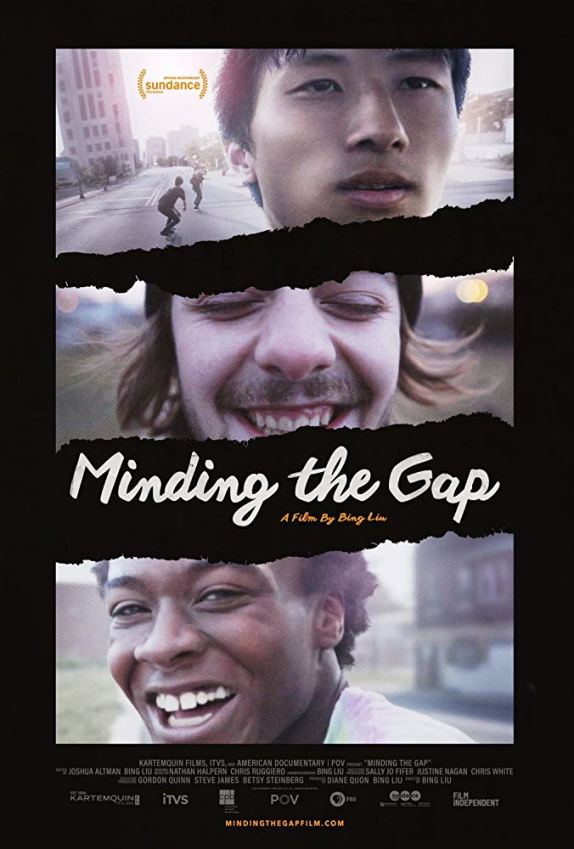
This seemingly modest documentary about skateboarding buds in a run-down town turns out to be one of the year’s best films, a captivating story of intergenerational pain, domestic violence, economic woes, race, substance abuse, mental health, and the terrors of burgeoning adulthood. Director Bing Liu weaves the stories of two friends – self-destructive Zack and sensitive, longing Kiere – alongside his own tale of growing up with an abusive stepfather in Rust Belt casualty Rockford, Illinois. All three young men witnessed violence and conflict in their childhood homes; the resulting trauma manifests itself in varying forms, but to a degree that is always heartbreaking.
Minding the Gap is not so much about skateboarding – though it does feature some beautiful skating footage and portrays the sport as perhaps the trio’s only healthy outlet – but about the ways in which all young adults struggle to shape their futures in relation to their pasts. The aesthetic is punk rock and weed smoke and skate parks, but the film’s pain and catharsis are universal. Minding the Gap’s insights are aided by the inclusivity of its approach: when it becomes apparent that Zack has abused Nina, the mother of his son, Liu pivots and gets her story. Rather than viewing her as merely a victim, he gets Nina to open up about her own past and troubled upbringing, expanding the film’s focus from three subjects to four.
Minding the Gap doesn’t shy away from the flaws of its subjects, and Liu steadfastly avoids the post-production false notes that turns the third act of so many documentaries into after-school specials. The result is an emotionally bracing film that transforms prosaic material into stunning and provocative art. Also, extra points for using a Mountain Goats over the closing credits.
